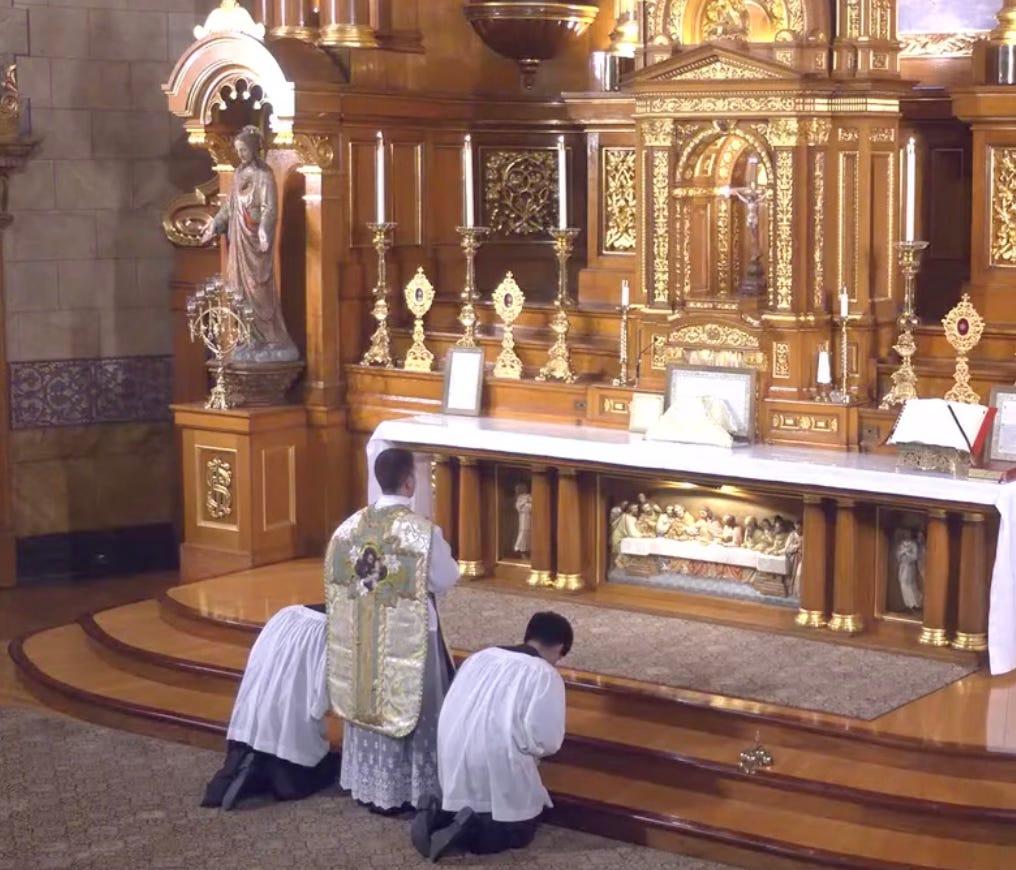Confiteor: God, Be Merciful
Saturday, March 29th Readings Reflection: Saturday of the Third Week of Lent
Today’s Gospel recounts the parable of the Pharisee and publican praying in the Temple. An early Greek Christian wrote the following about the publican’s actions in this parable: “[H]e feared to lift up his eyes to heaven, thinking unworthy of the heavenly vision those which had loved to gaze upon and wander after earthly things. He also smote his breast, striking it as it were because of the evil thoughts, and moreover rousing it as if asleep. And thus he sought only that God would be reconciled to him, as it follows, saying, God be merciful” (Catena Aurea).
This image of the penitent publican is very similar to the way in which we pray the Confiteor at Mass. Traditionally, the priest first prays the Confiteor at the beginning of Mass, bowing profoundly and beating his breast as he thrice accuses himself of sinning “through [his] most grievous fault.” The servers then pray the Confiteor, bowing profoundly and beating their breasts in turn, and the priest grants a general absolution for venial sins (mortal sins require sacramental Confession in order to worthily receive Holy Communion). Traditionally, the servers once again pray the Confiteor before the reception of Holy Communion, pointing to the necessity of being free from sin before receiving the Bread of Life.
The above ancient commentary on today’s parable reveals the deep symbolism of our actions when praying the Confiteor liturgically. The priest and servers bow deeply, a reminder that by our sinfulness, we have preferred to gaze upon earthly and perhaps even immoral things rather than keeping our eyes fixed upon God. When praying the Confiteor, we stare at the ground while imploring God’s forgiveness. We do this not out of a superficial and prideful admittance of our sins like the Pharisee in today’s Gospel, for such a confession lacks a real sorrow and contrition for our sins; rather, we bow in humility before our God and cast our eyes downward in a humble recognition that our sins separate us from the infinite love of God.
Similarly, when we beat our breasts three times as we confess our sins mea maxima culpa (through my most grievous fault), we humbly acknowledge that we are fully to blame for our own sins. Unlike Original Sin, which we inherit as part of our humanity, actual sin is the willful violation of God’s law. When we sin, we freely and willfully consent to disobeying God’s laws. Through habitual sins, our intellects and wills become numbed and desensitized to the effects of sin, and we slip further and further into our sins. By beating our breasts, we rouse our intellects and wills from their stupor through a physical action that is both humbling and symbolic of punishment.
Being physically beaten, as Our Lord was during His Passion, was historically a means of chastisement for those who had broken civil laws. When we beat our breasts during the Confiteor, we do not inflict harm upon ourselves, but the gesture nonetheless reminds us that we deserve punishment for our sins, by which we have broken God’s laws and separated ourselves from His infinitely loving Heart. May these richly symbolic actions of praying the Confiteor lead us to a deeper trust in God’s divine mercy as we, like the repentant publican in today’s parable, implore His mercy on our souls.


